Abstract
With an increasing awareness of health disparities, medical schools are challenged to develop training in cultural competency for their students. We developed and evaluated the effectiveness of an interactive workshop designed to improve third-year students' attitudes, beliefs and cross-cultural communication skills. METHODS: At the start of a six-week required family medicine clerkship, 196 medical students participated in small group (20-24 students) workshops. Didactics included facts about health disparities and a model of cultural competency. During a skill-building component, students were exposed to live vignettes portraying ineffective and effective cross-cultural doctor-patient interactions. Impact on students' attitudes, perceived bias and knowledge of techniques was assessed by comparing pre- and postworkshop scores. RESULTS: Participants increased their cultural awareness on most items of a cultural awareness scale. Fifty-five-, 71- and 66% of the sample agreed or strongly agreed the program was valuable, appropriate and effective, respectively. Conversely, only 17-, 6- and 9% of the sample disagreed or strongly disagreed, respectively. CONCLUSIONS: A workshop for third-year students led to an increase in cultural awareness and was considered appropriate and valuable. Further study, including longitudinal training and evaluation, is needed regarding effective methods to increase cultural competence in clinical practice.
Full text
PDF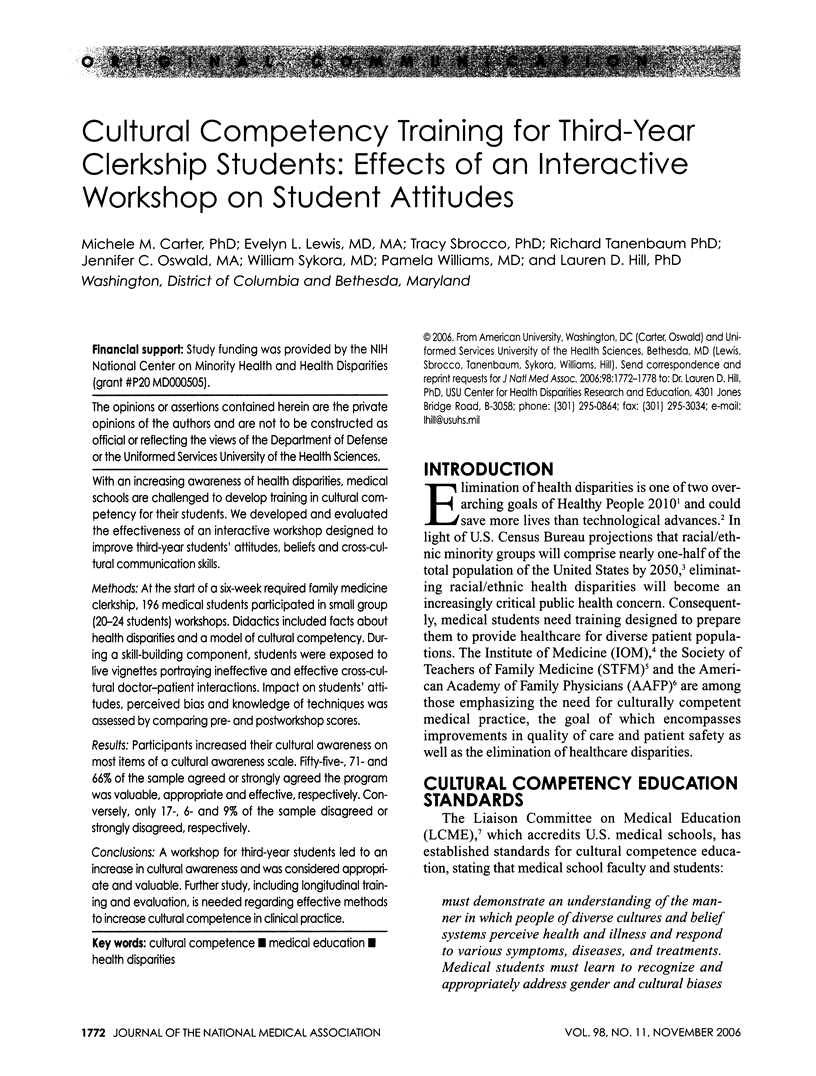
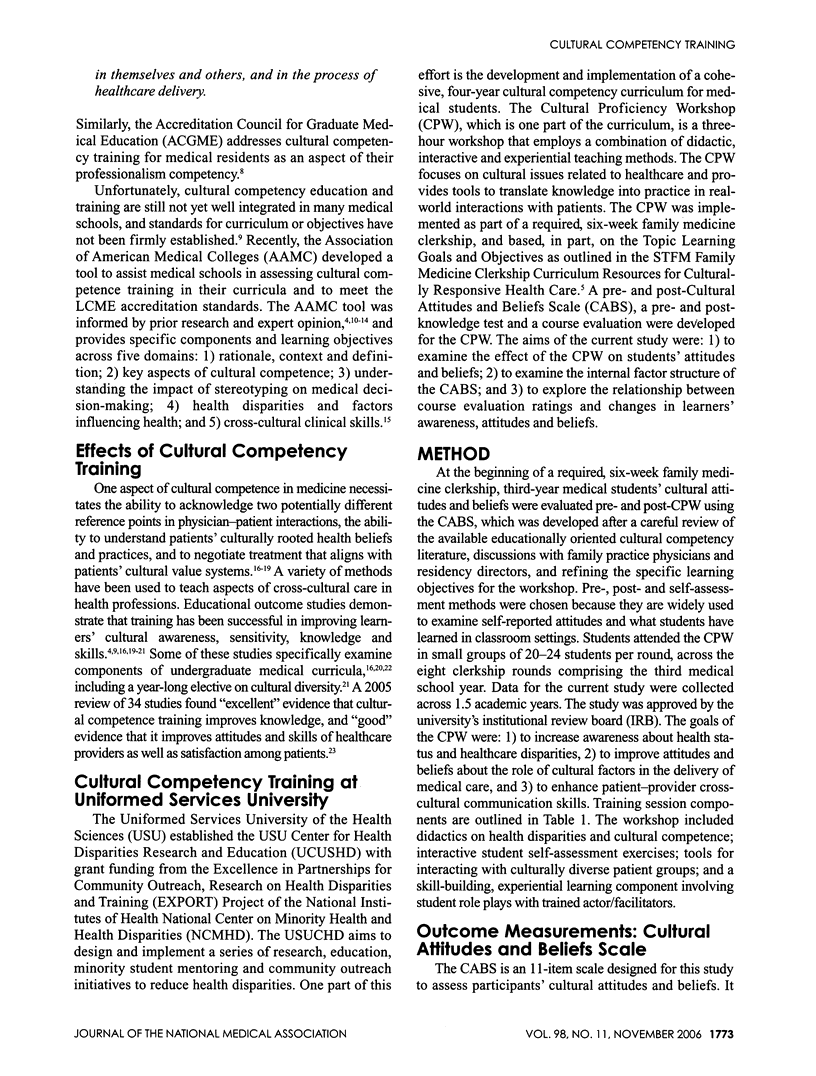
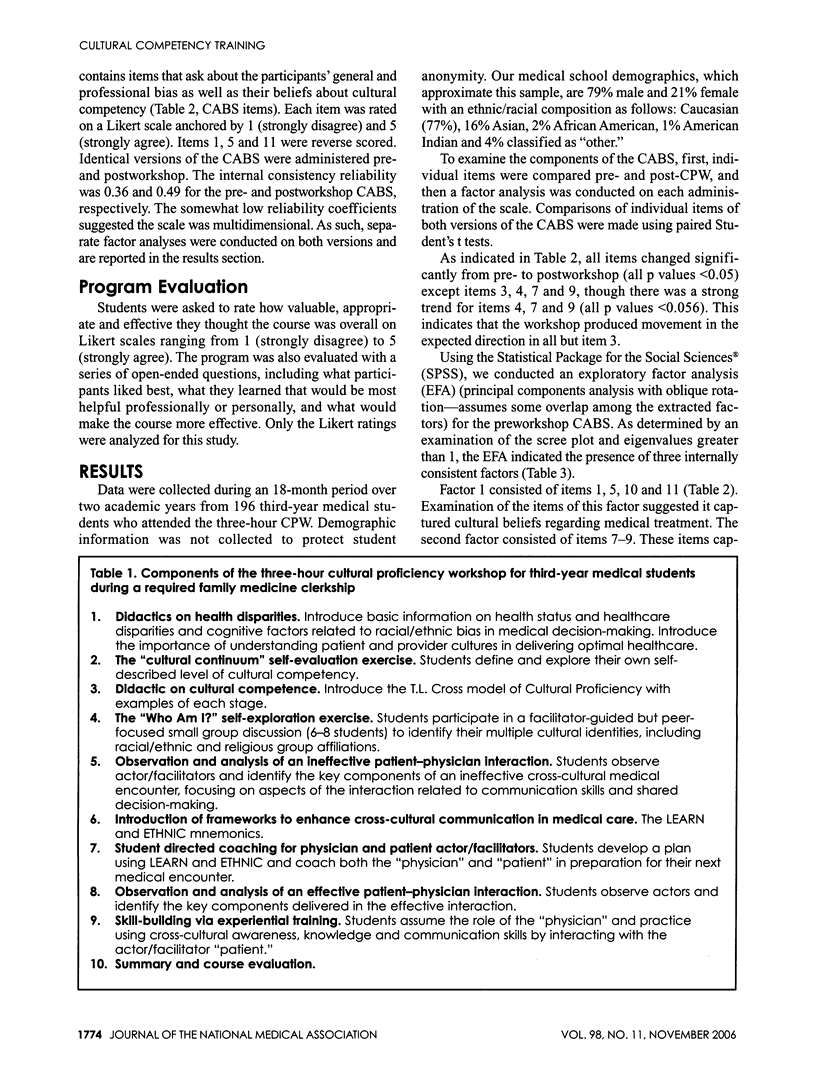
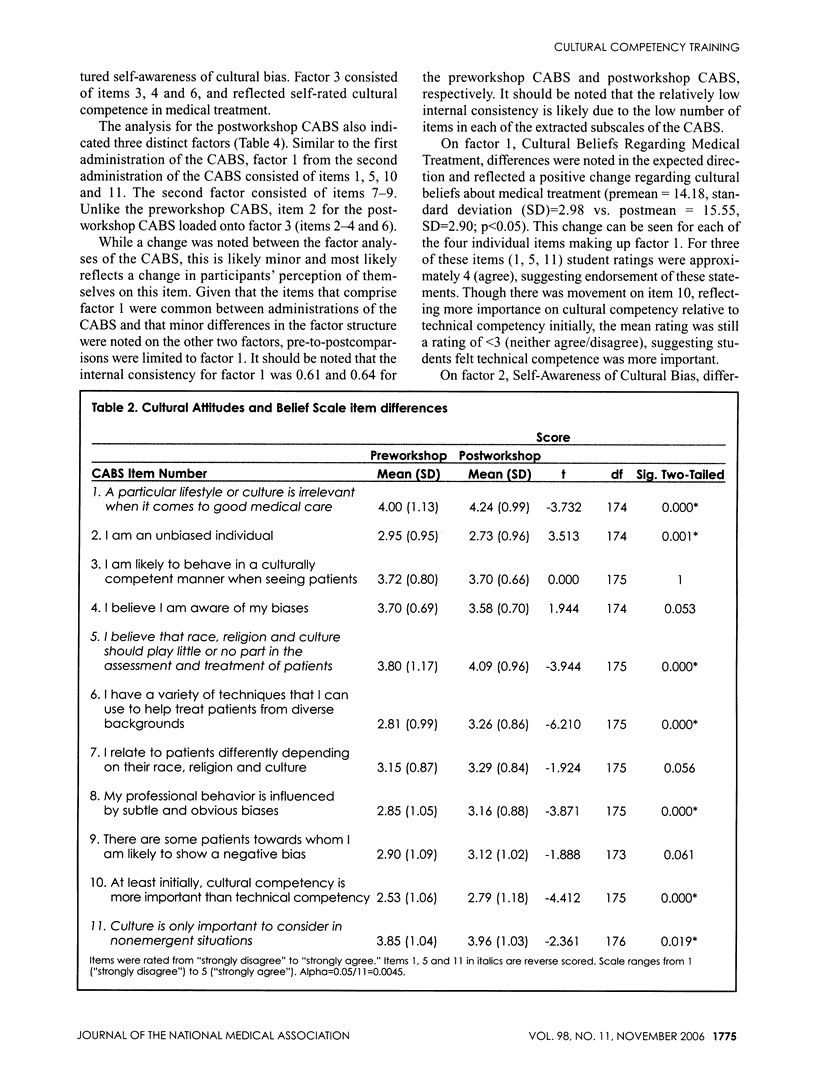
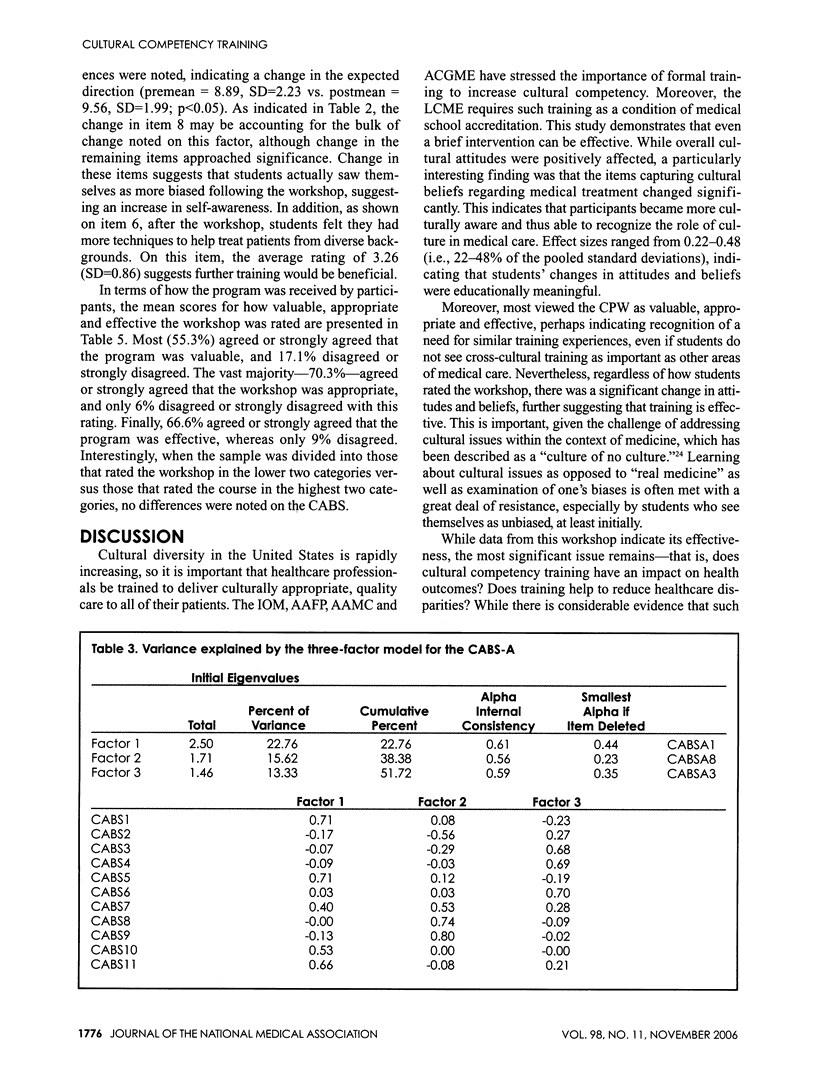


Selected References
These references are in PubMed. This may not be the complete list of references from this article.
- Beach Mary Catherine, Price Eboni G., Gary Tiffany L., Robinson Karen A., Gozu Aysegul, Palacio Ana, Smarth Carole, Jenckes Mollie W., Feuerstein Carolyn, Bass Eric B. Cultural competence: a systematic review of health care provider educational interventions. Med Care. 2005 Apr;43(4):356–373. doi: 10.1097/01.mlr.0000156861.58905.96. [DOI] [PMC free article] [PubMed] [Google Scholar]
- Beagan Brenda L. Teaching social and cultural awareness to medical students: "it's all very nice to talk about it in theory, but ultimately it makes no difference". Acad Med. 2003 Jun;78(6):605–614. doi: 10.1097/00001888-200306000-00011. [DOI] [PubMed] [Google Scholar]
- Betancourt Joseph R. Cross-cultural medical education: conceptual approaches and frameworks for evaluation. Acad Med. 2003 Jun;78(6):560–569. doi: 10.1097/00001888-200306000-00004. [DOI] [PubMed] [Google Scholar]
- Bussey-Jones Jada, Genao Inginia, St George Diane Marie, Corbie-Smith Giselle. Knowledge of cultural competence among third-year medical students. J Natl Med Assoc. 2005 Sep;97(9):1272–1276. [PMC free article] [PubMed] [Google Scholar]
- Crandall Sonia J., George Geeta, Marion Gail S., Davis Steve. Applying theory to the design of cultural competency training for medical students: a case study. Acad Med. 2003 Jun;78(6):588–594. doi: 10.1097/00001888-200306000-00007. [DOI] [PubMed] [Google Scholar]
- Dogra N. The development and evaluation of a programme to teach cultural diversity to medical undergraduate students. Med Educ. 2001 Mar;35(3):232–241. doi: 10.1046/j.1365-2923.2001.00734.x. [DOI] [PubMed] [Google Scholar]
- Kagawa-Singer Marjorie, Kassim-Lakha Shaheen. A strategy to reduce cross-cultural miscommunication and increase the likelihood of improving health outcomes. Acad Med. 2003 Jun;78(6):577–587. doi: 10.1097/00001888-200306000-00006. [DOI] [PubMed] [Google Scholar]
- Like Robert C. Culturally competent family medicine: transforming clinical practice and ourselves. Am Fam Physician. 2005 Dec 1;72(11):2189–2190. [PubMed] [Google Scholar]
- Peña Dolhun Eduardo, Muñoz Claudia, Grumbach Kevin. Cross-cultural education in U.S. medical schools: development of an assessment tool. Acad Med. 2003 Jun;78(6):615–622. doi: 10.1097/00001888-200306000-00012. [DOI] [PubMed] [Google Scholar]
- Robins L. S., White C. B., Alexander G. L., Gruppen L. D., Grum C. M. Assessing medical students' awareness of and sensitivity to diverse health beliefs using a standardized patient station. Acad Med. 2001 Jan;76(1):76–80. doi: 10.1097/00001888-200101000-00020. [DOI] [PubMed] [Google Scholar]
- Taylor Janelle S. Confronting "culture" in medicine's "culture of no culture". Acad Med. 2003 Jun;78(6):555–559. doi: 10.1097/00001888-200306000-00003. [DOI] [PubMed] [Google Scholar]
- Tervalon Melanie. Components of culture in health for medical students' education. Acad Med. 2003 Jun;78(6):570–576. doi: 10.1097/00001888-200306000-00005. [DOI] [PubMed] [Google Scholar]
- Woolf Steven H., Johnson Robert E., Fryer George E., Jr, Rust George, Satcher David. The health impact of resolving racial disparities: an analysis of US mortality data. Am J Public Health. 2004 Dec;94(12):2078–2081. doi: 10.2105/ajph.94.12.2078. [DOI] [PMC free article] [PubMed] [Google Scholar]


